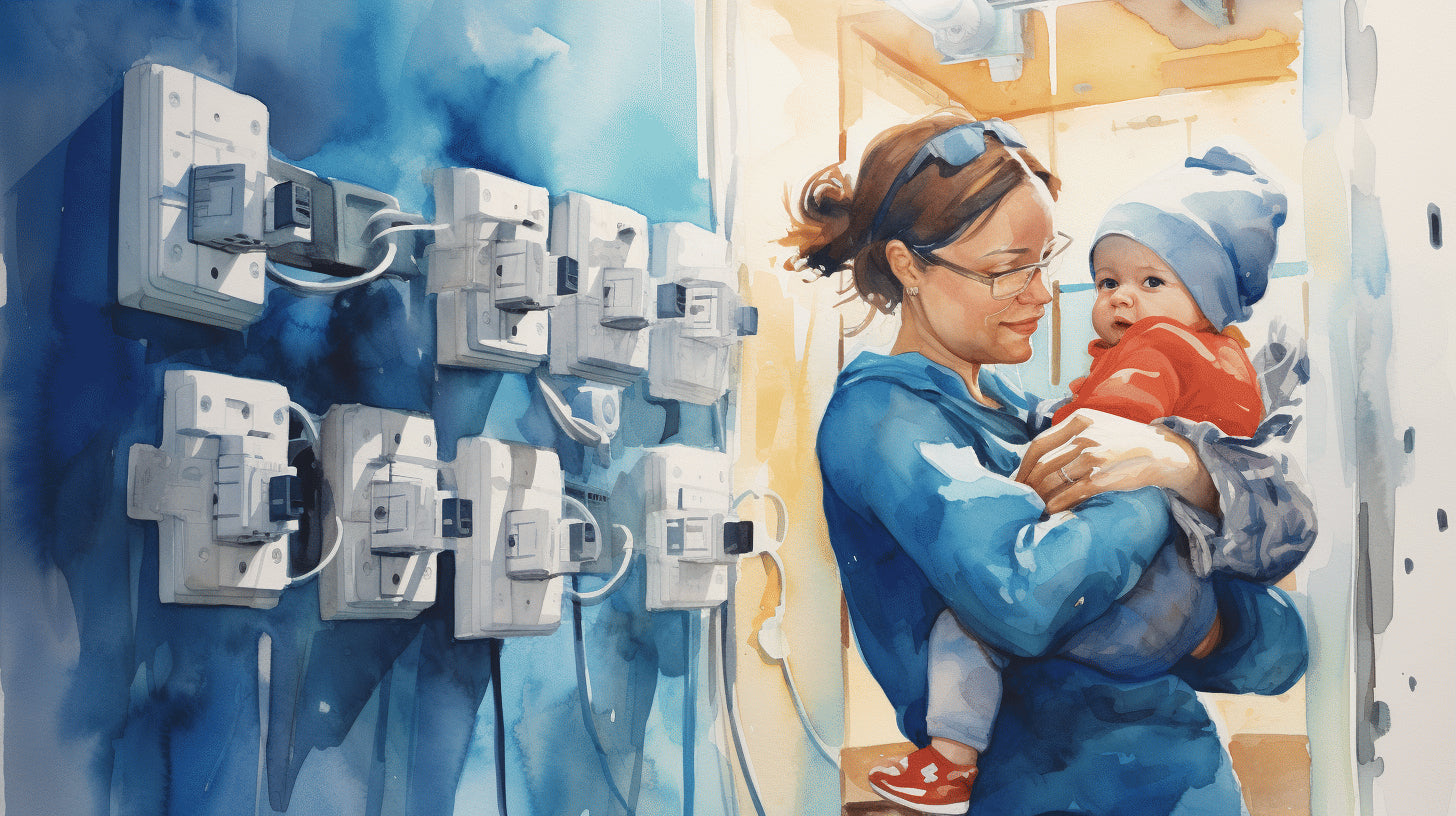College is a pivotal moment in a person's life filled with new adventures, lifelong friendships, and, of course, an abundance of learning. However, amidst all the excitement, it's crucial not to overlook a fundamental aspect of college life: campus safety.
The safety of students on campus is no casual matter. It requires a conscious effort from everyone involved—from the college administrators to the students themselves. Even though most institutions have measures in place to protect their students, sometimes those steps alone are not sufficient to guarantee a safe environment. It's essential for students to take personal initiatives, equipping themselves with knowledge and using tools and resources available to them.
This article aims to serve as a comprehensive guide to understanding campus crime statistics, offer practical safety tips for students, shine light on campus security measures, and how to best use resources available to boost personal safety. After all, education is vital, but it serves little purpose if you don't feel safe while acquiring it. Stay with us as we delve into this critical topic that makes a significant difference in college life.
Understanding Campus Crime Statistics
When you think of college, several things might come to mind: pursuing a degree, making lifelong friends, enjoying the freedom of living away from home for the first time. But, like any community, colleges and universities are not exempt from crime. Understanding campus crime statistics is essential for the safety and well-being of the entire academic community. This knowledge can guide proactive efforts to build safer campus environments.
Common Crimes on College Campuses
What kind of crimes typically occur on college campuses? Besides the occasional prank that gets out of hand, campuses regularly deal with more serious issues such as:
- Burglary: Dormitory rooms and campus buildings are prime targets for property theft.
- Vehicle theft: Cars or bikes left on campus can become attractive targets for theft.
- Forcible sex offenses: Regrettably, these disturbing crimes are part of the crime culture on some campuses and are a significant concern.
By staying aware of these common problems, students and faculty can take necessary precautions to protect themselves and their property.
Reported Crimes on College Campuses
If you've ever wondered how safe your college campus really is, here's a sobering statistic: in 2017, there were 28,400 reported crimes on college campuses in the United States. This figure reminds us that no campus is entirely immune to crime and highlights the need for vigilance about personal safety, as well as effective crime-reporting and -prevention programs from college administrations.
Violent Crime and College-age Americans
One particularly alarming trend in campus crime statistics relates to violent crimes. College-age Americans are, sadly, the most likely group to suffer any type of violent crime. With over 65,000 violent crimes committed on campuses across the U.S. in a recent year, this issue cannot be ignored. College campuses must address this persistent problem by developing improved strategies to prevent violence, support victims, and bring perpetrators to justice.
At the core, understanding campus crime statistics is about much more than numbers. It's about creating a secure, supportive learning environment for everyone. By keeping these statistics in mind, every member of a college community can contribute to improving campus safety. In doing so, they're helping to ensure that college remains a place for education, growth, and friendship, not fear.
Safety Tips for College Students
Entering the world of higher education might seem like diving into a universe filled with new experiences and challenges. While the freedom and excitement of college life are enticing, they come with their unique set of risks. Almost 70% of college students express concerns about safety-related situations, which inevitably become part of their experience in some form or another. This article aims to share safety tips to ensure that your college journey is a secure and fulfilling one.
Familiarize Yourself with the Campus
One of the first steps you should take upon arrival at your college campus is to familiarize yourself with it. It's essential to identify various landmarks, know what buildings are where, and understand the layout. This knowledge goes beyond just knowing where your classes are; it contributes significantly to your overall safety.
Avoid Walking Alone at Night
Although your campus might feel like a safe haven, it's crucial to remain cautious, especially during nighttime hours. If possible, always opt to walk with a group or at least one other person when walking at night. Isolation makes one an easy target, and having company can deter potential harmful situations.
Know Emergency Systems Locations
A less known but equally vital safety measure involves knowing the locations of emergency systems on campus. This practice can range from knowing where call buttons and security offices are to understanding the emergency evacuation procedures. These systems exist for students' safety, and utilizing them effectively can make a significant difference in critical situations.
Utilize Locks and Security Systems
Though it might seem obvious, using locks is a critical safety measure often overlooked in the hustle and bustle of college life. Remember, even if you're stepping out briefly, secure your living space. Take advantage of any provided security systems, and don't forget to secure your vehicle (if you have one). These simple steps can act as robust deterrents for would-be thieves.
Protect Your Property
College campuses are characterized by a sharing culture, especially in dormitories. However, this should not extend to your valuable possessions. Keep gadgets, money, and other valuable items safely stored, and avoid leaving anything in plain sight which can tempt potential thieves.
Being safe on campus isn't about living in fear; it's about being aware of your surroundings and taking proactive measures to ensure your own security. You might also be interested in reading about Practical Tips for Students for more safety practices. After all, safety awareness is a significant part of being prepared for your college journey.
Campus Safety Precautions
Embarking on a new life in college is an adventure marked with several important milestones. Amidst the euphoria of newfound freedoms and exciting academic exposure, it's easy to overlook a significant aspect: campus safety. Just as our Must-Know Safety Precautions blog post states, understanding and practicing safety measures is vital to navigate through this thrilling journey confidently and securely. Here, we accentuate the following three essential campus safety precautions.
Avoid Walking Alone After Dark or in High Crime Areas
Night brings a certain tranquility and charm to the university environment. However, beneath this serene facade, the risk of unforeseen perils may lurk. A key tip is to avoid walking alone after dark or in areas notorious for high crime rates. Accompany friends or use a designated campus escort service for late-night strolls or commutes, especially when traversing poorly lit or secluded paths. This communal approach increases visibility and drastically reduces your vulnerability to potential danger.
Use Locks and Security Devices
While making memories and exploring intellectual pursuits, it's easy to lose track of personal belongings. The usage of locks and security devices should become second nature. Dorms and apartments should always be locked when unattended and valuable possessions like laptops, tablets, and phones should be secured at all times. Some campuses offer rental lockers for an extra layer of protection. It cannot be stressed enough: the key to preventing the loss of property is meticulous and consistent use of security devices.
Be Aware of Surroundings
College life can become a whirlwind of events where it's normal to be engrossed in hectic schedules and exhilarating social gatherings. However, an acute awareness of one's surroundings is an essential safety skill to hone. From knowing the exact location of emergency exits in buildings to noticing unusual activity in your vicinity, situational awareness is a vital defense mechanism.
In our digital age, always remember to limit distractions from mobile devices while on the move. Your smartphone may house all your essential contacts and apps; yet, being constantly glued to it could make you oblivious to potential hazards around you.
As we usher in a fresh academic year, let's remind ourselves that staying safe doesn't end with the familiarization of these tips. They need to be practiced and propagated. A safe campus not only enhances the university's reputation but also fosters an environment conducive to learning and making lifelong friendships. Remember, safety is not just a precaution, but a way of life.
Campus Safety Resources
Your safety is paramount while you're pursuing your academic dreams on your college campus. Let's get familiar with some crucial safety resources that will put your mind at ease and allow you to focus on your studies.
Campus Safety Offices
Your first port of call when it comes to safety should be the Campus Safety Office. They are always ready to provide assistance and help you understand any safety concerns you may have. Here's how they can help:
- Informative Resources: Campus Safety Offices usually provide a wealth of information about safety practices, including student-led safety campaigns and information about awareness weeks targeted at specific safety issues.
- Training and Workshops: Most of them conduct regular safety training and workshops to educate students about how to stay safe and handle emergencies on campus.
- 24/7 Support: These offices offer round-the-clock support, assisting with everything from medical emergencies to lost keys.
Make sure you know the location of the Campus Safety Office and keep their emergency contact number stored in your phone.
Emergency Call Boxes
Installed across your campus are Emergency Call Boxes, another invaluable safety resource. These bright, easy-to-spot devices are a lifeline if you're in immediate danger or need fast assistance. By pressing a button, you can communicate directly with campus security or the local police department. Remember, these boxes aren't solely for emergencies. They are also a great resource if you need help with directions or any other non-emergency situations.
Safety Classes
Take a proactive approach to your personal safety by enrolling in Safety Classes. These classes vary from campus to campus, and here are a few examples of what you might find:
- Self Defense Classes: Learn basic self-defense techniques that can be your first line of defense in a threatening situation.
- First Aid and CPR: Acquire lifesaving skills, such as providing first aid during medical emergencies or performing CPR.
- Fire Safety: Learn how to use fire extinguishers and escape safely in case of fire emergencies.
Remember, staying informed and prepared is key to ensuring safety at college. So, take advantage of these resources, stay vigilant, and always trust your instincts.
Protecting Personal Safety and Belongings
Safeguarding one's personal safety and belongings while at college is vital. A surprisingly high number of students encounter safety challenges during their time on campus. This typically varies from petty theft to being the victim of more severe crimes. Fortunately, there are several proactive steps that students can take to ensure they are less likely to become a statistic in such circumstances.
Lock Dorm Room Doors and Secure Valuables
While this may seem overly simplistic, often, the most obvious safety precautions are the ones that people overlook. Always locking dorm room doors, even when leaving for a few minutes, can significantly reduce the likelihood of theft. Securing valuable items, like laptops and jewelry, in a lockbox or safe may provide an added layer of protection. It might also be beneficial to consider renter's insurance to mitigate potential financial losses if an incident occurs.
- Lock Dorm Room Doors: This small action can go a long way in preventing unwanted intrusions.
- Secure Valuables: Ensuring high-value items are well protected can deter potential thieves.
- Renter's Insurance: This can help cover the cost of replacing stolen items.
Avoid Oversharing Personal Information
In the digital age, it's quite common to share personal information online, perhaps without considering the potential risks. Providing less detail about an upcoming vacation, or even a night out, can keep unsavory characters from taking advantage of your absence. It's crucial to remember that personal safety isn't only about physical protection but also extends to the digital realm.
- Limit Personal Details Online: Keeping a low internet profile can make it harder for potential thieves to track your activities.
- Use Privacy Settings: Setting social media profiles to private and being selective about friend requests can also enhance safety.
Report Suspicious Activities
The community has a pivotal role in maintaining safety on campus. Promptly reporting suspicious activities can help keep everyone safe. Understanding that anyone can be a victim of crime and recognizing that prevention is a shared responsibility, can lead to a significant enhancement in campus safety.
- Keep an Eye Out: Be alert and aware of any strange activities or actions in your vicinity.
- Prompt Reporting: Contact campus security or local law enforcement right away if you observe anything unusual.
Remember, staying safe at college is not a one-time event, but rather an ongoing process. For more detailed information, consider reviewing these Strategies for Personal Safety on campus. Armed with this knowledge, everyone can contribute to making their campus experience more secure and enjoyable.
Campus Security Measures
Picture this: You are all settled into your dorm, excited to seize the new academic year, when one question nags at you - "Is it safe here on campus?" Fret not, dear reader. This section is dedicated to those much-needed campus security measures that ensure students, like you, can go about your day with peace of mind.
Access Control
If there's a perfect way to keep campuses safe, it's through reliable access control. This isn't your conventional lock-and-key situation, folks. We're talking about technologically advanced systems designed to restrict unauthorized access to the campus. These systems might include electronic ID card scanners or biometric systems at entrances. They ensure that only students, faculty, and authorized staff can gain access to the college premises.
Of course, no system is foolproof, but effective access control does reduce the risks significantly. It serves as the first line of defense in making campuses secure and safe for everyone.
Video Surveillance
"Big Brother is watching you." This quote, albeit from a dystopian fiction, might make you uneasy, but it holds considerable relevance in our context. Video surveillance is another proactive campus security measure that colleges employ widely. CCTV cameras are strategically placed around campuses to monitor activities around the clock. Most times, they act as powerful deterrents to criminal activities.
Surely, you've noticed those tiny domes perched high on the walls of your new home-away-from-home. That's not just for show. These cameras are the silent watchers that ensure your faculty can identify, track, and prevent potential incidents of aggression or misconduct.
They don't just keep an eye on the public areas either but also cover secluded spots - those you might want to avoid after dark or find unsafe. So, whether you're burning the midnight oil in the library or hurrying back from a late-night study group, rest assured you are being watched over.
However, remember this: Campus security measures like access control and video surveillance should not replace personal vigilance. While we trust our colleges to ensure security, it's equally important to actively participate in our own security. So, gear up, stay alert, and you'll enjoy the confidence that peace of mind brings.
Next up, we dive into some personal safety habits and precautions. These will be the practical tools you can wield to protect your safety and your belongings. After all, you can't have too many safeguards when it's about your security, can you?
Frequently Asked Questions
-
What are some strategies for staying safe on a college campus?
Some strategies for staying safe on a college campus include: 1. Walking with a friend or in well-lit areas at night, 2. Being aware of your surroundings, 3. Locking your doors and windows, 4. Utilizing campus security services, and 5. Trusting your instincts.
-
How can I protect my personal belongings on a college campus?
To protect your personal belongings on a college campus, you should: 1. Keep your dorm room or apartment locked, 2. Use a laptop lock or secure storage for valuable electronics, 3. Avoid leaving your belongings unattended in public areas, 4. Engrave your name or mark your items with a unique identifier, and 5. Install tracking apps on your mobile devices.
-
What should I do in case of an emergency on campus?
In case of an emergency on campus, you should: 1. Call emergency services or campus security, 2. Follow the instructions given by authorities, 3. Evacuate or take shelter as directed, 4. Stay calm and support others if possible, and 5. Seek medical attention if needed.
-
Are there any self-defense classes available for college students?
Many colleges offer self-defense classes or workshops for their students. Check with your campus security or student affairs office to inquire about the availability of such classes. Additionally, there may be local community centers or martial arts studios that offer self-defense courses.
-
What resources are available on campus to ensure student safety?
Resources available on campus to ensure student safety may include: 1. Campus police or security services, 2. Emergency call boxes throughout campus, 3. Safety escorts for walking at night, 4. Counseling services for emotional and mental well-being, and 5. Safety education programs and workshops.
















Leave a comment
This site is protected by hCaptcha and the hCaptcha Privacy Policy and Terms of Service apply.